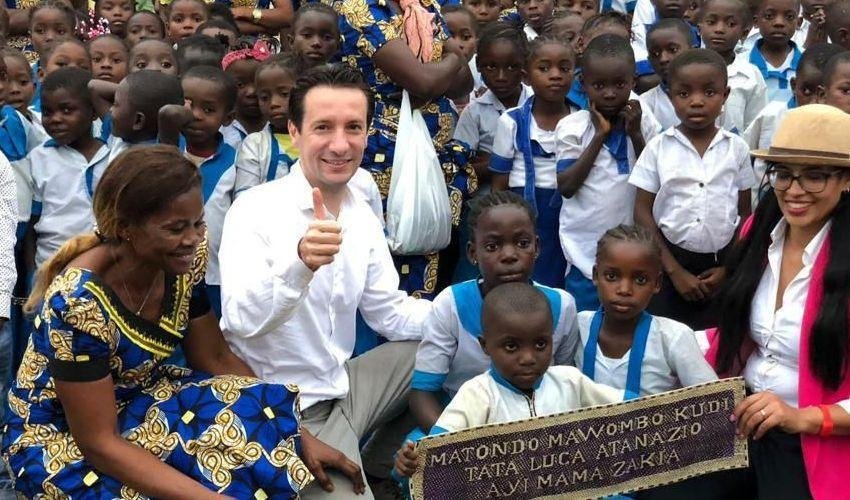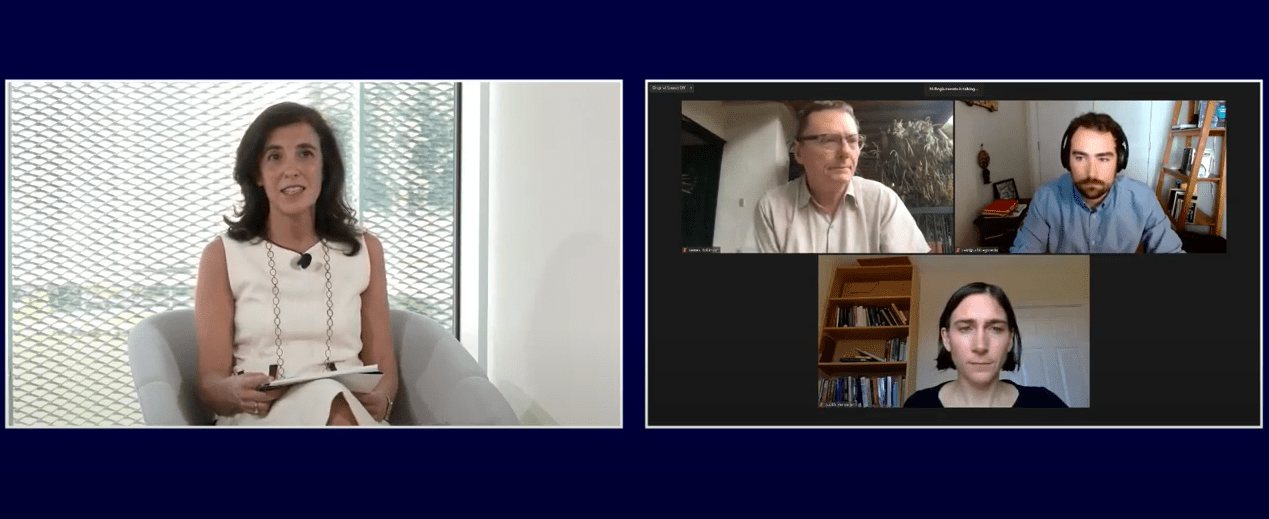Understanding the Democratic Republic of Congo

Loyalty, unity, courage and authenticity: the words used to remember Luca Attanasio, the Italian ambassador that tragically passed away in the Democratic Republic of Congo at the beginning of the year.
On June 15th, Bocconi and its Laboratory for Effective Anti-poverty Policies (LEAP) held a discussion on the social, political, and economic state of Congo to pay tribute to the life of Luca and unveil the scholarship fund set up in his name. The 90,000 euros raised from over 800 donors (and matched by the University with the same amount) will grant five students the opportunity to study at Bocconi and be inspired by its stimulating environment as Luca was.
Chaired by Prof. Eliana La Ferrara, the proceeding discussion consulted three experts on African development and, more specifically, DRC to outline the complexities ensnarling the country.
The first of the three presenters, Prof. James Robinson, Reverend Dr. Richard L. Pearson Professor of Global Conflict at the Harris School of Public Policy, University of Chicago, began by providing an institutional perspective on the historical origins that led to the current state of Congo. The desire for autonomy that conflicted with the benefits of economic scale led to the emergence of hybrid institutions across Africa. Instead of the rise of a state replacing kinship and tribal authority, as was typically witnessed in Western countries, the two were fused together with an emphasis on supernatural power, limited taxation and public good provision, absence of monopoly of violence and an ungoverned periphery. When the Mobutu Sésé Seko came to power in 1965 his desire to scale up this segmentary structure to replace colonial institutions lead to the haphazard and politically, economically and socially fragile country of today.
Prof. Raul Sanchez de la Sierra, from the Harris school of Public Policy, University of Chicago, then moved the discussion to how present-day rebel groups exploit these circumstances and their interplay with the state. After spending five years with rebel groups in the DRC, it became evident to him that rebel groups assumed state functions when there was limited government presence, enforcing tax collections and judicial power, and that operating a rebel group was extremely lucrative. For example, by replacing traditional authorities and establishing a monopoly of violence, the Nduma Defense of Congo in the village of Walikale made $1.4 million in profit in January 2021. This creates incentives for rebel groups to emerge and provide state functions, usually in natural resource rich areas. Eradication of these rebel groups by military operations then becomes complicated as they could jeopardize these state functions, which these regions have become dependent on, and lead to an escalation of violence due to future uncertainty. As a result, a precarious situation develops, that trades off the threat of violence and traditional government presence.
Dr. Judith Verweijen from the University of Sheffield then wrapped up the discussion by providing an in-depth overview of militarization in the DRC. From a political perspective, at the international level, the insecurity in eastern Congo and international regulation has deterred multinationals from direct operations in the region. At the national and provincial level, however, there is a direct correspondence between politicians and armed groups, with the latter providing defense and the former gaining local popularity, and government recognition, through the protection they provide. In return for protection, militarization is compensated economically through taxation/fees, extortion and banditry. For militarization to thrive, however, an unstable, societal fragmented and insecure environment is necessary, which perpetuates these destructive circumstances. Dr. Verweijen emphasized it is important to address militarization at its root, which is a network of armed groups, to move to a more stable equilibrium that facilitates government presence.
With the complex economic and political circumstances of DRC being laid out, the event concluded with Luca’s father speaking heartfelt words provided by those who had the honor of knowing him. From his high school philosophy teacher who encouraged his parents not to “clip his wings as [Luca] has a vision that will take him very far”, to Ambassador Mauro Battocchi, who followed his ambassadorial journey from Bern to Kinshasa as a mentor, recalling his ability to bring people together. Having achieved so much by establishing the Mamma Sofia association in Kinshasa to give street children a future and projects in remote villages across the country, Luca remained ambitious to improve the prospects and circumstances for future generations. His legacy will be remembered for years to come.
by Jack Melbourne
Watch the conference: https://www.youtube.com/playlist?list=PLNBlD2s94-0ugmnC44T4D62F_7YXO3Ig0
